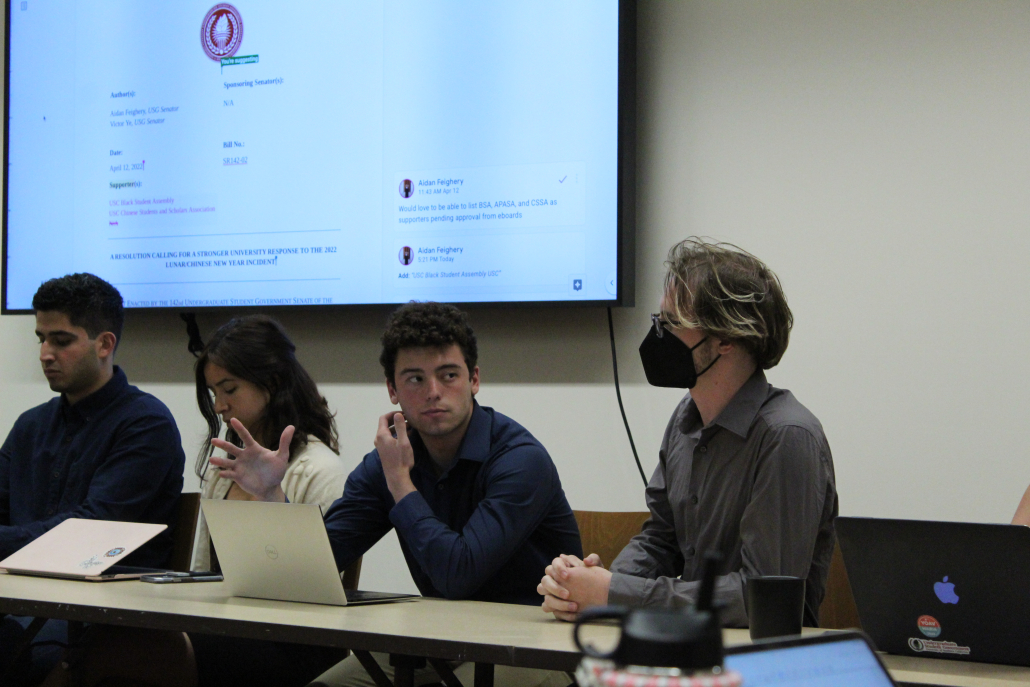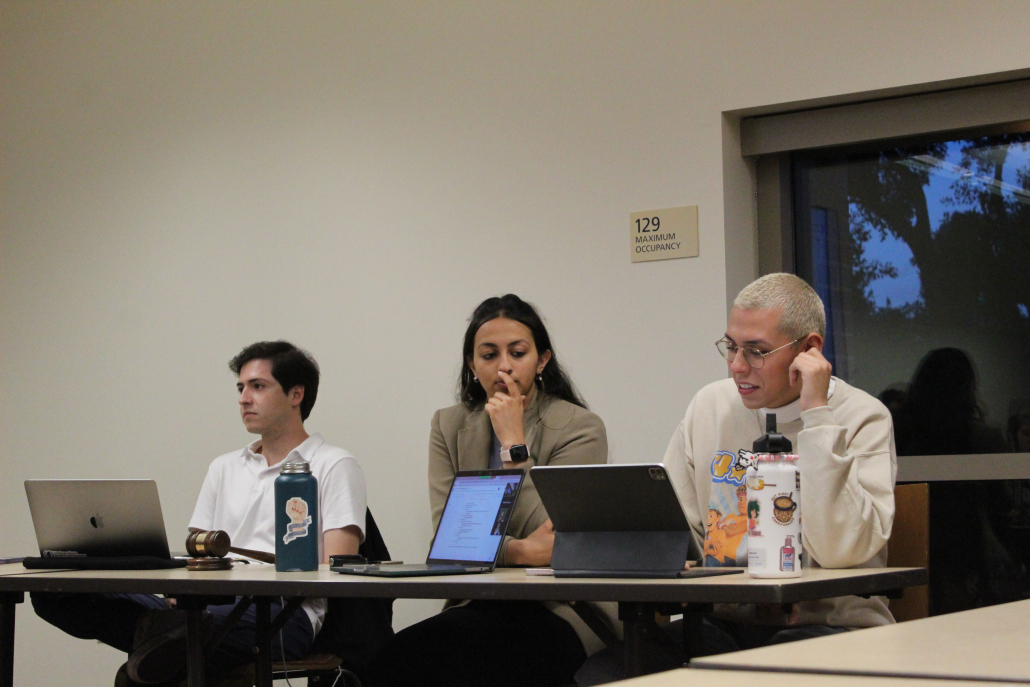USG reviews the IFC Working Group

Content warning: This article contains reports of sexual assault and violence.
Outgoing Chief Diversity Officer Kavita Rai presented a review of the Interfraternity Council Working Group at the Undergraduate Student Government senate meeting Tuesday. USG’s goal for the working group is to increase student oversight to administration complicity, ensure that student voices are heard and provide a pulse on campus climate and student perception to administrative solutions.
The working group, created in early December 2021, worked to make recommendations to Provost Charles Zukoski regarding the terms and duration of the University’s suspension of IFC events following multiple reports of sexual assault and drugging at the Sigma Nu Fraternity house last October.
The group’s risk team has been working with Fraternity & Sorority Leadership Development to provide onsite review and support to IFC chapters hosting social events and providing “sober rooms,” designated areas where individuals attending the party can go when they feel overwhelmed and be provided food and water.
“We’ve gotten a lot of positive feedback from Panhellenic folks about sober rooms and the risk team procedure, feeling an overall safer environment,” Rai said.
The group also discussed prevention education designed to move away from module-based compliance learning to in-person interactive learning with the help of internal and external partners.
The group looks towards having strong engagement to support students and providing resources such as Relationship & Sexual Violence Prevention outreach, having embedded counselors in University cultural centers and mandating accessible fentanyl and drug test strips at all USC-sponsored social events.
At last week’s senate meeting, senator Aidan Feighery introduced a resolution calling for a stronger University response to social media posts made on Lunar New Year. The student’s posts on USC’s Instagram account celebrating Lunar New Year resulted in backlash from Asian community members. The resolution looks to recall attention to this issue and ask for a formal apology from the University.
At this week’s meeting, the senate raised questions about whether or not the resolution would be an appropriate solution to this situation and discussed the process of whether or not the senate is overusing their resolutions.
After a lengthy discussion, the resolution failed to pass, with two votes for yes, three abstains and seven votes for no. Many of the senators cited that they voted no because of the lack of direct support from the Asian Pacific American Student Assembly and whether or not this resolution will do anything if passed.

“The consensus I heard from most of the senate is that they agreed with the goal of the resolution but disagreed that a resolution was the right way to get it done,” Feighery said. “I respect the difference of opinion and look forward to my work with student groups and the administration in bringing about solutions that will address this issue and prevent similar ones from occurring in the future.”
Prior to the senate meeting, a pre-senate meeting was held to introduce the senate to the committee chairs’ nominations.
Vice president Nivea Krishnan later announced the committee chair nominations at the meeting. If approved, the committee chairs would include Hunter Hinson, a junior majoring in political science and communication, as the chair of affordability & basic needs; Julianna Melendez, a freshman majoring in international relations, as the chair of accessibility; Sara Stienecker, a freshman majoring in political science, as the chair of campus operations and sustainability; Kate Hsu, a junior majoring in international relations and global economy, as the chair of academic affairs; Monica Rodrigues, a freshman majoring in quantitative biology, as the chair of external affairs; Phong Doozy, a junior majoring in health and human sciences, as the chair of wellness and David Martinez, a sophomore majoring in public policy as the parliamentary secretary.
Chief communications officer Paul Yi also announced 12 candidates as nominations to the communications department.
“I also really stressed gender parity [when selecting candidates],” Yi said. “So, you will notice there are five men and there are seven women in terms of the candidates … Also, I stressed external organization experiences as well as direct USG related experience so there’s a mix of those to have a healthy balance.”
The senate will confirm next year’s committee chairs and the members of the communications department at next week’s meeting.

